Climbing can be an exhilarating and physically demanding activity for kids. Whether they are climbing indoors at a gym or scaling rocks outdoors, providing them with the right fuel is crucial to keep their energy levels up and ensure they have an enjoyable experience. Snacks play a vital role in providing the necessary nutrients and hydration to sustain their energy during climbing sessions.
In this article, we will explore the best climbing snacks for kids. We will discuss a variety of snack options that are not only delicious but also nutritious, providing the essential nutrients kids need for optimal performance and recovery. From portable and convenient options to healthy and energizing choices, we will cover a range of snacks that will keep your little climbers satisfied and fueled throughout their climbing adventures.
So, let’s dive in and discover the top snacks that will support your kids’ climbing endeavors and make their experience even more enjoyable.
Table of Contents
Why do we need snacks as climbers?
Snacks play a vital role in climbing activities, providing the necessary fuel and nutrients to support physical exertion and maintain energy levels. Whether it’s a short hike or a challenging ascent, having appropriate snacks during climbing is essential for several reasons. Let’s explore the importance of snacks in climbing:
1. Sustained Energy
Climbing requires endurance and sustained energy. Snacks provide a source of carbohydrates, which are the body’s primary fuel for physical activity. Carbohydrate-rich snacks, such as fruits, whole grains, and energy bars, provide a quick and easily digestible source of energy. Having snacks on hand helps replenish glycogen stores and maintain consistent energy levels throughout the climb.
2. Muscle Recovery and Repair
Climbing involves the use of various muscle groups, leading to muscle fatigue and micro-tears. Protein-rich snacks aid in muscle recovery and repair. Protein provides the necessary amino acids for rebuilding and strengthening muscles. Including snacks with protein, such as nuts, seeds, yogurt, or lean meats, helps support muscle recovery after a strenuous climbing session.
3. Mental Focus and Concentration
Climbing requires mental focus and concentration, especially when navigating challenging routes or making strategic decisions. Snacks that contain healthy fats, such as avocados, nut butter, or trail mix, contribute to brain health and cognitive function. These fats provide essential fatty acids that support brain function, helping climbers stay focused and alert during their ascent.
4. Hydration Support
Proper hydration is crucial during climbing to maintain performance and prevent dehydration. While water is essential, snacks can also contribute to hydration. Fruits and vegetables with high water content, such as watermelon, oranges, or cucumbers, not only provide hydration but also offer additional vitamins, minerals, and antioxidants. Hydrating snacks help replenish fluids and electrolytes lost through sweat during climbing.
5. Satiety and Hunger Management
Climbing can be physically demanding, leading to increased appetite. Snacks help manage hunger and provide a feeling of satiety, preventing energy dips and excessive hunger during the climb. Including snacks that are high in fiber, such as whole grain snacks or fruits, helps keep climbers feeling satisfied and fueled throughout their adventure.
6. Boosted Performance and Endurance
Proper nutrition plays a significant role in performance and endurance during climbing. Having appropriate snacks that provide a balance of carbohydrates, proteins, and healthy fats helps optimize physical performance. Snacks help maintain energy levels, prevent fatigue, and support muscle function, allowing climbers to push themselves further and reach their goals.
7. Enjoyment and Motivation
Snacks not only serve a practical purpose in climbing but also add to the overall enjoyment and motivation. Tasty and appealing snacks can provide a sense of pleasure and satisfaction during breaks or rest periods. The anticipation of a delicious snack can also serve as a motivation factor, encouraging climbers to push through challenging sections and reach their desired destinations.
Considerations for Choosing Climbing Snacks for Kids
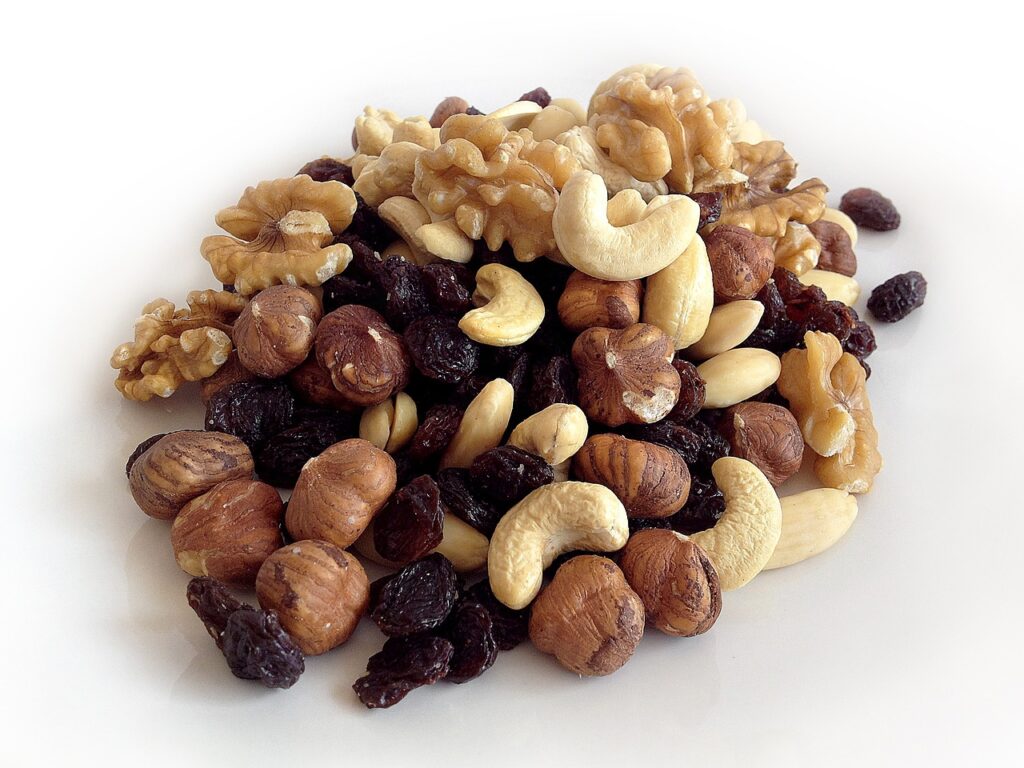
When it comes to choosing climbing snacks for kids, there are several important considerations to keep in mind. These considerations ensure that the snacks provide the necessary energy, nutrients, and convenience for a successful climbing experience. Let’s explore these considerations in detail:
1. Nutritional Balance
Climbing requires sustained energy and endurance, making it crucial to choose snacks that offer a balance of carbohydrates, proteins, and healthy fats. Carbohydrates provide the primary source of energy, while proteins support muscle repair and recovery. Healthy fats contribute to satiety and provide essential fatty acids. Opt for snacks that incorporate all these nutrients to keep kids energized throughout their climbing adventure.
2. Portability and Convenience
When climbing, it’s essential to choose snacks that are easy to carry and consume on the go. Look for snacks that are portable, lightweight, and can withstand various weather conditions. Individually wrapped or portioned snacks are particularly convenient, allowing kids to grab and eat them without any hassle. Choose snacks that don’t require additional utensils or extensive preparation.
3. Allergies and Dietary Restrictions
Take into account any allergies or dietary restrictions that the kids may have. Some common allergens to be mindful of include nuts, gluten, dairy, or soy. Ensure that the snacks you choose are safe and suitable for the specific dietary needs of the children. If necessary, consult with parents or guardians to understand any restrictions and provide alternative options accordingly.
4. Taste and Appeal
Kids are more likely to enjoy and consume snacks that are visually appealing and tasty. Consider their preferences and choose snacks that they find appealing. Incorporate a variety of flavors, textures, and colors to make the snacks enticing. Engage kids in the selection process, allowing them to choose snacks that they genuinely enjoy. When snacks are delicious and appealing, it encourages kids to eat and replenish their energy levels during climbing.
5. Nutrient Density
Choose snacks that offer a high nutrient density, meaning they provide a significant amount of nutrients in a relatively small portion. Nutrient-dense snacks ensure that kids receive the necessary vitamins, minerals, and antioxidants for their active bodies. Opt for snacks that incorporate whole, minimally processed ingredients and avoid snacks that are primarily empty calories with little nutritional value.
6. Long-Lasting Energy
Climbing activities can be physically demanding and may last for an extended period. It’s important to choose snacks that provide long-lasting energy to sustain kids throughout their climb. Snacks with complex carbohydrates, such as whole grains, fruits, and vegetables, release energy gradually, providing a steady source of fuel. Avoid snacks high in simple sugars, as they can lead to quick energy spikes followed by crashes.
7. Hydration Support
Hydration is crucial during climbing to prevent dehydration and maintain optimal performance. Choose snacks that can contribute to hydration, such as fruits with high water content or electrolyte-enhanced snacks. Additionally, encourage kids to drink water regularly and pack a reusable water bottle for their climbing adventure.
What are the best climbing snacks for kids?
When it comes to fueling your body for physical activities like climbing, it’s important to choose snacks that are not only delicious but also provide the right balance of nutrients to keep you energized. Here are some healthy and energizing snack ideas that you can enjoy before, during, or after your climbing sessions:
3. Energy Bars
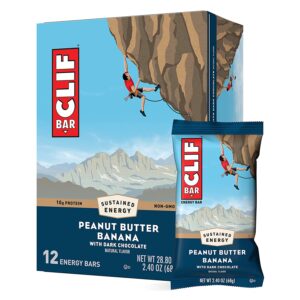
Energy bars, also known as protein bars, are specially formulated to provide a quick and convenient source of energy. These bars are typically high in carbohydrates, proteins, and healthy fats, offering a balanced macronutrient profile. Energy bars often contain additional ingredients like nuts, seeds, dried fruits, and chocolate chips for added flavor and texture. They are designed to provide sustained energy and can be a great choice for climbers needing a boost during intense physical activity.
Why Energy Bars are the Perfect Snack for Climbing Enthusiasts
Energy bars are specifically designed to provide a quick and sustained release of energy. They are typically packed with carbohydrates, proteins, and fats, along with added vitamins and minerals. Energy bars come in various flavors and formulations, allowing you to choose one that suits your preferences and dietary needs.
2. Trail Mix
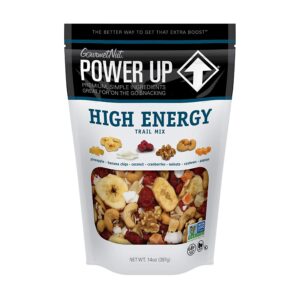
Trail mix is a versatile and customizable snack that combines a mix of nuts, seeds, dried fruits, and sometimes chocolate or other tasty additions. It offers a balance of healthy fats, proteins, and carbohydrates, making it an excellent choice for climbers. Trail mix provides a quick and energizing snack that can help replenish energy levels and satisfy hunger while on the go. Its compact and lightweight nature makes it easy to carry in a backpack or pocket during climbing adventures.
Why Trail Mix is the Perfect Snack for Climbing Enthusiasts
Trail mix is a versatile snack option that combines nuts, dried fruits, seeds, and sometimes chocolate or other sweets. It offers a good balance of carbohydrates, healthy fats, and proteins, making it an ideal snack to keep you energized and satisfied during your climbing adventures.
3. Granola Bars
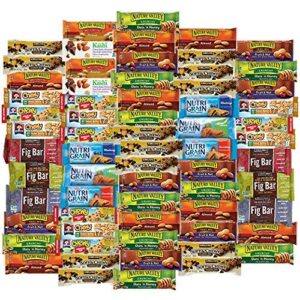
Granola bars are a popular and convenient snack choice for people of all ages. These bars are typically made with a combination of rolled oats, nuts, seeds, dried fruits, and sweeteners, providing a wholesome and satisfying snack option. Granola bars come in various flavors and textures, offering something for everyone’s taste preferences. Whether you’re heading for a climbing adventure or need a quick pick-me-up during the day, granola bars are a go-to snack that provides energy and nutrition in a convenient package.
Why Granola Bars are the Perfect Snack for Climbing Enthusiasts
Granola bars are an excellent choice for climbers because they are compact, lightweight, and packed with energy. They often contain a combination of oats, nuts, seeds, and dried fruits, providing a good mix of carbohydrates, healthy fats, and proteins to keep you fueled during your climbs.
4. Dried Fruit
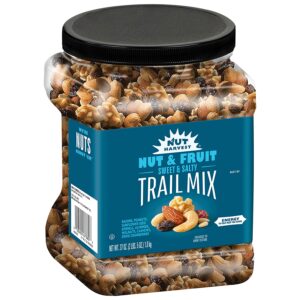
Dried fruit is a delicious and nutritious snack that is made by removing the water content from fresh fruit. This process concentrates the natural sugars and flavors of the fruit, resulting in a chewy and sweet treat. Dried fruit comes in a wide variety, including raisins, apricots, dates, cranberries, and more. It is a great source of dietary fiber, vitamins, minerals, and antioxidants. Dried fruit is lightweight, portable, and has a long shelf life, making it an ideal snack for climbers and outdoor enthusiasts.
Why Dried Fruit is the Perfect Snack for Climbing Enthusiasts
Dried fruit is a convenient and nutritious snack option for climbers. It is lightweight, portable, and rich in natural sugars, providing a quick source of energy. Dried fruits like raisins, dates, and apricots also offer essential vitamins, minerals, and dietary fiber.
5. Fresh Fruit
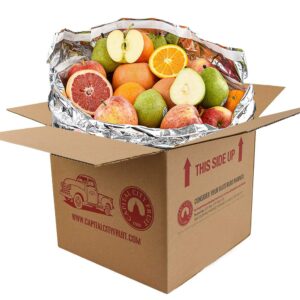
Fresh fruit is a natural and refreshing snack that offers a wide range of vitamins, minerals, and fiber. Fruits like apples, bananas, oranges, and grapes are easy to pack and consume during climbing activities. They provide hydration, natural sugars for energy, and essential nutrients to support overall health. Fresh fruit is a delicious and wholesome snack option that can be enjoyed as is or combined with other snacks like nut butter or yogurt for added flavor and nutrition.
Why Fresh Fruit is the Perfect Snack for Climbing Enthusiasts
Fresh fruit, such as apples, oranges, and bananas, can be a refreshing and nutritious snack for climbers. They provide natural sugars, vitamins, minerals, and hydration. Fresh fruit is lightweight, easy to pack, and offers a flavorful and hydrating break during your climbs.
6. Canned Tuna
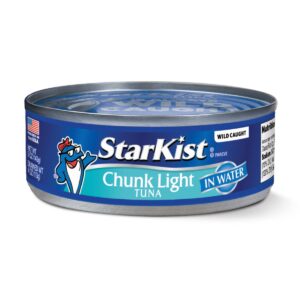
Canned tuna is a protein-rich snack option that can provide a quick and convenient source of sustenance for climbers. Tuna is packed with essential amino acids, omega-3 fatty acids, and various vitamins and minerals. It is low in fat and calories, making it a healthy choice for those seeking a high-protein snack. Canned tuna can be easily carried and enjoyed on the go, whether eaten plain, mixed with mayonnaise, or used as a topping for crackers or bread.
Why Canned Tuna is the Perfect Snack for Climbing Enthusiasts
Canned tuna is a protein-rich snack that can be enjoyed straight from the can or combined with crackers or bread. It offers a good source of lean protein, omega-3 fatty acids, and essential nutrients. A canned tuna is a convenient option for climbers looking to replenish their energy levels and support muscle recovery.
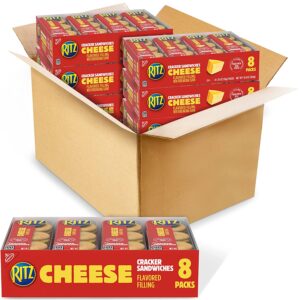
Cheese sandwich crackers are a tasty and portable snack that combines the flavors of cheese and crackers into a convenient package. These crackers are often filled with cheese spreads or have a cheese-flavored coating, offering a satisfying blend of crunch and creaminess. They can provide a quick source of carbohydrates and protein, making them a suitable snack option for climbers looking for a savory treat during their adventures.
Why Cheese Sandwich Crackers is the Perfect Snack for Climbing Enthusiasts
Cheese sandwich crackers are a satisfying and portable snack option. They combine the goodness of cheese, crackers, and sometimes additional ingredients like peanut butter or herbs. These crackers provide a combination of carbohydrates, proteins, and fats, making them a tasty and filling choice for climbers.
8. Nut Bars
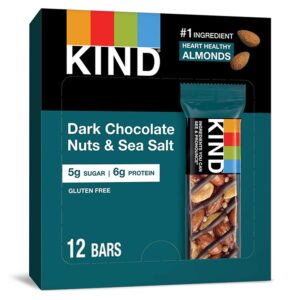
Nut bars are nutritious and energy-dense snacks that are packed with various nuts like almonds, peanuts, cashews, and walnuts. These bars provide a good balance of healthy fats, proteins, and fiber, making them a filling and satisfying choice for climbers. Nut bars often contain additional ingredients like seeds, dried fruits, and honey, enhancing the flavor and nutritional profile. They offer a convenient and portable snack option that can keep climbers fueled and satiated.
Why Nut Bars are the Perfect Snack for Climbing Enthusiasts
Nut bars, made with a variety of nuts like almonds, peanuts, and cashews, are an excellent source of healthy fats, proteins, and dietary fiber. They offer a crunchy and satiating snack option for climbers, providing sustained energy and essential nutrients.
9. Jerky
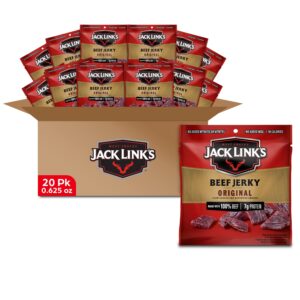
Jerky is a dried and cured meat snack that provides a concentrated source of protein. It is typically made from beef, but other meats like turkey, chicken, and even plant-based alternatives are available. Jerky is known for its chewy texture and savory flavors. It offers a high-protein snack option that can help repair and rebuild muscles after strenuous climbing activities. Jerky is lightweight, easy to carry, and has a long shelf life, making it a popular choice for climbers.
Why Jerky is the Perfect Snack for Climbing Enthusiasts
Jerky, often made from lean meats like beef or turkey, is a protein-packed snack that can be enjoyed on the go. It offers a combination of protein, essential amino acids, and micronutrients. Jerky is lightweight, non-perishable, and provides a savory and flavorful snack for climbers.
10. Peanut Butter
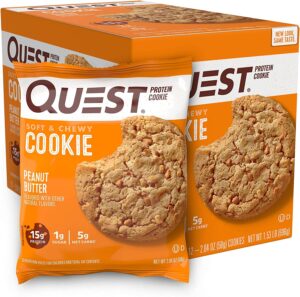
Peanut butter is a versatile and delicious spread made from roasted peanuts. It is rich in healthy fats, protein, and fiber, providing a satisfying snack option for climbers. Peanut butter can be enjoyed on its own, spread on crackers or bread, or incorporated into energy balls or bars. It offers a combination of nutrients and can help keep climbers feeling full and energized during their climbing adventures.
Why Peanut Butter is the Perfect Snack for Climbing Enthusiasts
Peanut butter is a delicious and energy-dense snack that can be enjoyed on its own or combined with other snacks like crackers or fruit. It is a rich source of healthy fats, protein, and fiber. Peanut butter provides long-lasting energy and can help keep climbers feeling full and satisfied.
Snacks to Avoid
While choosing the right snacks is crucial for fueling your body during climbing adventures, it’s equally important to be mindful of snacks that may hinder your performance or have negative effects on your health. Here are some snacks to avoid or consume in moderation:
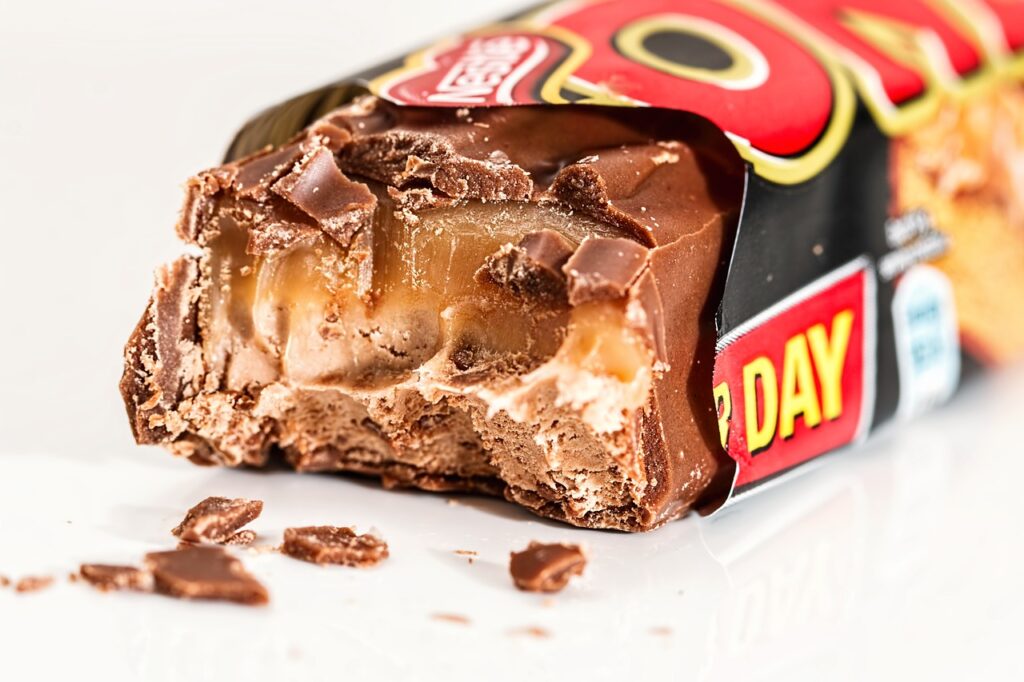
1. Sugary and Processed Snacks
Snacks high in added sugars, such as candy, soda, cookies, or sweetened beverages, should be avoided or limited. These snacks provide a quick energy boost but can lead to a subsequent crash, leaving you feeling fatigued and low on energy. Additionally, excessive sugar consumption has been linked to health issues like obesity, diabetes, and dental problems.
2. High-Fat and Fried Snacks
Snacks that are high in unhealthy fats or fried can be detrimental to your climbing performance and overall health. Avoid foods like potato chips, deep-fried snacks, or greasy fast food. These snacks are often low in nutrients and high in calories, which can lead to weight gain and sluggishness.
3. Salty Snacks
While a small amount of sodium is necessary for hydration and electrolyte balance, consuming excessive amounts of salty snacks can have negative effects. Snacks like potato chips, pretzels, or salted nuts are often high in sodium and can lead to dehydration. Excess sodium intake can also contribute to high blood pressure and other health issues.
4. Heavy and Greasy Snacks
Snacks that are heavy and greasy, such as fast food burgers, pizza, or deep-fried foods, should be avoided before or during climbing. These snacks can sit heavily in your stomach, leading to discomfort, sluggishness, and reduced agility. Opt for lighter and more nutritious options that provide sustained energy without the heavy feeling.
5. Highly Processed Snacks
Highly processed snacks often contain artificial additives, preservatives, and unhealthy trans fats. Examples include packaged snacks like cheese puffs, flavored crackers, or microwavable popcorn. These snacks are usually low in nutrients and may contribute to weight gain, inflammation, and other health issues. Choose whole food alternatives whenever possible.
6. Excessive Caffeine
While moderate amounts of caffeine can provide a temporary energy boost, excessive consumption can lead to jitters, nervousness, and even dehydration. Energy drinks and highly caffeinated beverages should be avoided as they can interfere with hydration levels and may negatively impact your climbing performance. Opt for water, herbal tea, or natural fruit juices instead.
7. Allergen-Containing Snacks
If you or your child have known allergies or sensitivities, be cautious of snacks that contain allergens. Common allergens include peanuts, tree nuts, dairy, gluten, and soy. Always read labels carefully and avoid snacks that may trigger an allergic reaction.
Snack Safety Tips
When it comes to choosing and consuming snacks, it’s important to prioritize safety to ensure the well-being of yourself and your children. By following these snack safety tips, you can minimize the risk of foodborne illnesses and enjoy snacks with peace of mind:
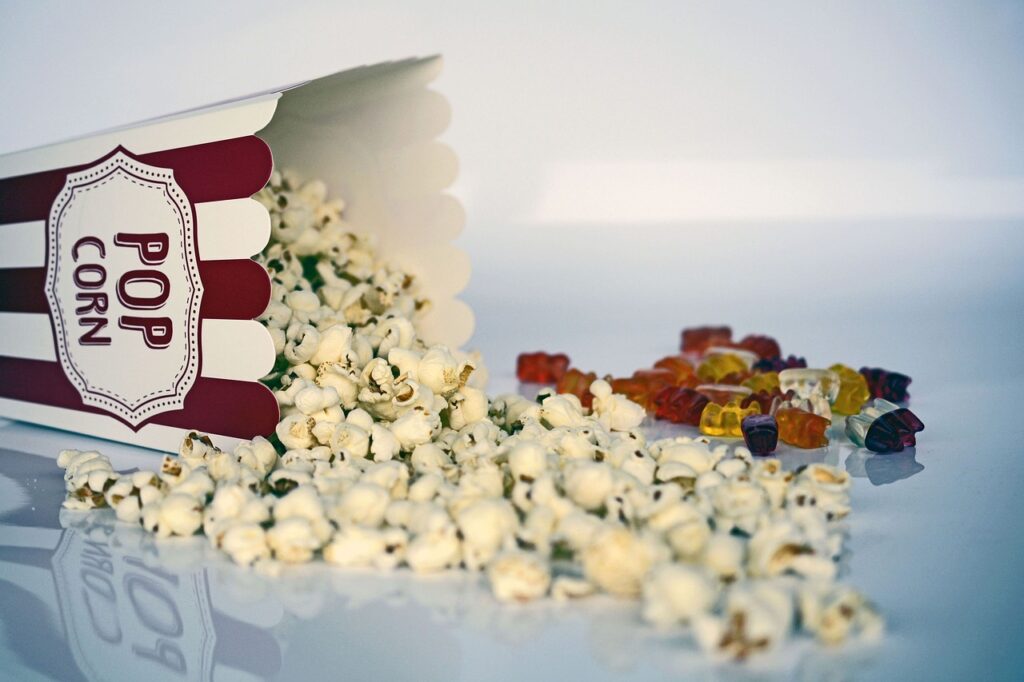
1. Check Expiration Dates
Always check the expiration dates on packaged snacks before purchasing or consuming them. Expired products may pose a risk of bacterial growth or spoilage. Discard any snacks that have passed their expiration date to avoid potential health issues.
2. Inspect Packaging
Before opening a package of snacks, inspect it for any signs of damage or tampering. Look for tears, dents, or bulges in the packaging, which may indicate that the snack has been compromised. If you notice any abnormalities, it’s best to discard the snack and choose a different one.
3. Wash Hands Thoroughly
Before handling snacks, make sure to wash your hands thoroughly with soap and water. This practice helps eliminate bacteria and reduces the risk of contamination. Encourage children to do the same to instill good hygiene habits.
4. Clean Preparation Surfaces
If you’re involved in preparing snacks at home, ensure that your preparation surfaces, cutting boards, and utensils are clean and sanitized. Regularly wash them with hot, soapy water or use a food-safe disinfectant to prevent cross-contamination.
5. Store Snacks Properly
Follow the storage instructions provided on the snack packaging. Some snacks may require refrigeration or specific temperature conditions to maintain freshness and safety. Pay attention to these guidelines and store snacks accordingly to prevent spoilage.
6. Avoid Cross-Contamination
Prevent cross-contamination by keeping different types of snacks separate from one another. For example, store raw meat or seafood snacks separately from ready-to-eat snacks to avoid the transfer of bacteria. Use separate containers or sealable bags for different snack categories.
7. Allergen Considerations
Be mindful of any allergies or sensitivities when selecting snacks, especially for children. Read ingredient labels carefully to identify potential allergens. If there is a risk of cross-contamination with allergens, consider opting for snacks that are labeled as allergen-free or made in dedicated facilities.
8. Temperature Control
If you’re carrying snacks for outdoor activities or outings, make sure to pack them in insulated containers or cooler bags with ice packs. This helps maintain appropriate temperatures and prevents perishable snacks from spoiling or becoming unsafe to consume.
Maximizing Your Recovery: What to Eat After Climbing
Proper post-climbing nutrition is essential for optimizing recovery and replenishing your body after a challenging climbing session. The right combination of nutrients can help repair muscles, replenish glycogen stores, and promote overall recovery. Here are some key considerations and food options to include in your post-climbing meals:
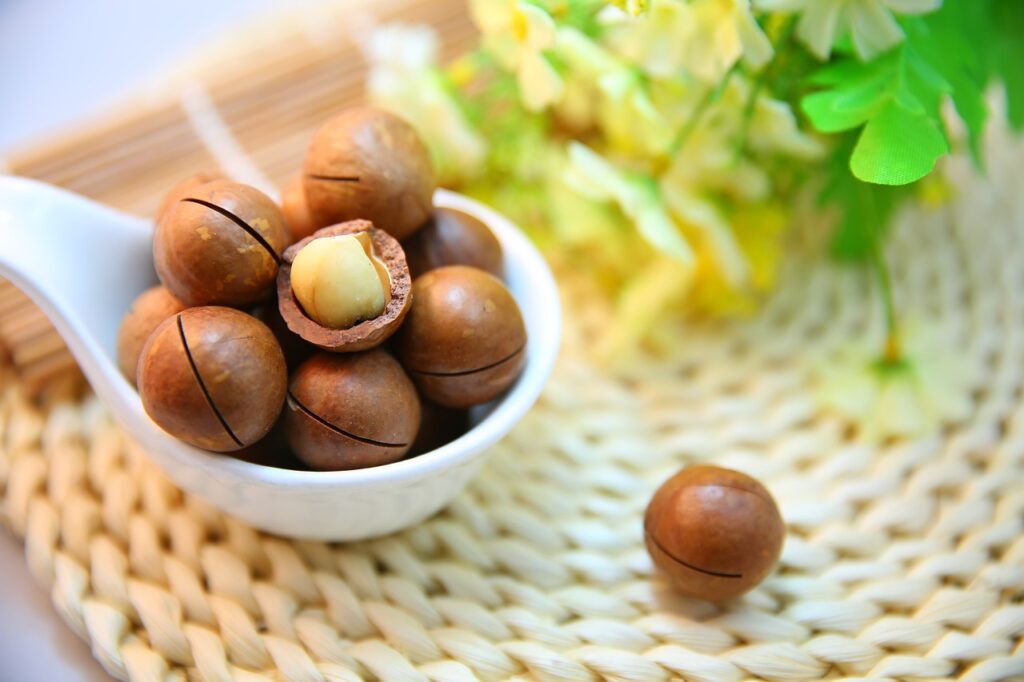
1. Replenish Carbohydrates
After climbing, it’s important to replenish your glycogen stores, which are depleted during physical activity. Carbohydrates are the primary fuel source for your body, and consuming them after climbing helps restore energy levels. Opt for complex carbohydrates such as whole grains, sweet potatoes, quinoa, or brown rice. These foods provide a steady release of energy and contain important nutrients like fiber and vitamins.
2. Repair with Protein
Protein is crucial for muscle repair and growth. Including protein in your post-climbing meal helps to rebuild and recover strained muscles. Excellent sources of protein include lean meats like chicken or turkey breast, fish, tofu, eggs, or Greek yogurt. If you follow a plant-based diet, consider options like lentils, beans, quinoa, or tempeh.
3. Include Healthy Fats
While it’s important to focus on carbohydrates and protein, don’t forget about healthy fats. These fats are essential for various bodily functions and can aid in reducing inflammation. Add foods like avocados, nuts, seeds, olive oil, or fatty fish (such as salmon or trout) to your post-climbing meal. These healthy fats provide satiety and additional nutritional benefits.
4. Optimize with Antioxidants
Climbing can lead to oxidative stress due to increased free radicals in the body. Antioxidants help combat this stress and promote recovery. Include colorful fruits and vegetables such as berries, citrus fruits, leafy greens, bell peppers, or tomatoes in your post-climbing meal. These foods are rich in antioxidants, vitamins, and minerals that support overall health and recovery.
5. Hydrate and Replenish Electrolytes
Proper hydration is crucial for recovery, especially after physical activity. Replenish lost fluids and electrolytes by drinking water or electrolyte-enhanced beverages. Additionally, including hydrating foods like watermelon, cucumbers, or coconut water in your post-climbing meal can aid in rehydration.
6. Nutrient-Dense Snacks
If you’re looking for a quick and convenient post-climbing snack, consider nutrient-dense options. Snacks like protein bars, fruit, and nut bars, Greek yogurt with fruits and granola, or a smoothie with a mix of fruits, vegetables, and protein powder can provide a combination of essential nutrients to support recovery.
7. Timing is Key
To maximize recovery, aim to consume your post-climbing meal or snack within the first 30-60 minutes after your session. This window of time is when your body is most receptive to nutrient absorption and muscle repair.
Remember, everyone’s nutritional needs may vary, so it’s essential to listen to your body and adapt your post-climbing meals to suit your specific requirements. Experiment with different foods and combinations to find what works best for you.
Conclusion
Choosing the best climbing snacks for kids involves considering their nutritional needs, convenience, and enjoyment. Opt for snacks that provide a balance of carbohydrates, proteins, and healthy fats. Make them portable, appealing, and easy to eat on the go. Engage kids in selecting their snacks and make the experience fun and exciting. By providing nutritious and energizing snacks, you’ll ensure that kids have the fuel they need to enjoy their climbing adventures to the fullest.
FAQs
1. Can I pack snacks that require refrigeration for climbing trips?
It’s best to avoid snacks that require refrigeration during climbing trips, as they may not remain fresh or safe to consume for an extended period. Choose non-perishable snacks or use a cooler with ice packs for perishable items.
2. What if my child has allergies to nuts or gluten?
If your child has allergies or dietary restrictions, there are many alternatives available. Look for snacks that are specifically labeled as nut-free or gluten-free. You can also opt for seeds, or dairy-free options, or consult with a healthcare professional for personalized advice.
3. How can I keep snacks fresh during longer climbing trips?
For longer climbing trips, use sealed containers or resealable bags to store snacks and prevent them from getting stale. Consider packing individual portions or using airtight containers to maintain freshness. If needed, bring along a cooler with ice packs for perishable snacks.
4. Are there any specific snacks for high-intensity climbs?
For high-intensity climbs, it’s important to provide snacks that offer sustained energy. Consider energy bars, trail mix with dried fruits and nuts, or sandwiches with lean protein. These snacks provide a good balance of carbohydrates, proteins, and fats to support endurance.
5. How can I encourage my child to drink enough water during climbing?
To encourage proper hydration, make sure your child has easy access to water throughout the climbing trip. Use a reusable water bottle and remind them to drink regularly. You can also add flavor to the water with slices of citrus fruits or encourage them to drink hydrating beverages like coconut water or herbal iced tea.









Discussion about this post